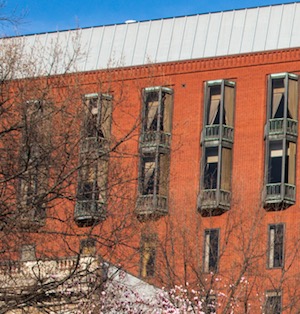 U.S. Water Servs., Inc. v. Novozymes A/S, Nos. 2015-1950, 2015-1967, 2016 U.S. App. LEXIS 22244 (Fed. Cir. Dec. 15, 2016)(Before Wallach, Hughes, and Stoll, J.)(Opinion for the court, Wallach, J.).
U.S. Water Servs., Inc. v. Novozymes A/S, Nos. 2015-1950, 2015-1967, 2016 U.S. App. LEXIS 22244 (Fed. Cir. Dec. 15, 2016)(Before Wallach, Hughes, and Stoll, J.)(Opinion for the court, Wallach, J.).
U.S. Water Services and Roy Johnson sued Novozymes A/S and Novozymes North America in the Western District of Wisconsin. At issue was a method patent disclosing the reduction of a byproduct that leads to fouling of processing equipment during alcohol production (i.e., ethanol). The patented method reduces the byproduct by introducing an enzyme, phytase.
The district court found that either of two prior art references inherently anticipated the asserted claims by disclosing the addition of phytase. However, there was a disputed material fact. The Federal Circuit pointed to expert testimony that disputed whether adding phytase according to the references would necessarily lead to reduction of the byproduct. By disregarding this expert testimony, the district court improperly made credibility determinations and weighed evidence during its summary judgment analysis. Thus, the judgment was reversed.
Next, Novozymes argued that it was inequitable conduct by U.S. Water to broaden certain claims in an amendment, because the amendment contradicted positions U.S. Water took in a parent patent during related litigation, and the contradiction was not disclosed to the examiner. The patent in suit required specific timing for the addition of phytase, while the amended application did not. The Federal Circuit affirmed the district court’s summary judgment of no inequitable conduct. It agreed that the examiner was aware of the differences between the patent and the application. Thus, Novozymes could not show that the patent would not have issued but for the examiner’s ignorance of a contradictory stance by U.S. Water. Because there was no genuine dispute about the materiality requirement, the Court did not reach the finding of no intent to deceive the USPTO.
It is inappropriate for a trial court to discount material expert testimony so as to weigh the evidence in favor of a party seeking summary judgment. The presence of a genuine dispute precludes summary judgment in such cases. … Failure to disclose arguments concerning claims of a different scope in a different patent application was not inequitable conduct when differences were apparent to the Examiner.

![[IPWatchdog Logo]](https://ipwatchdog.com/wp-content/themes/IPWatchdog%20-%202023/assets/images/temp/logo-small@2x.png)


![[Advertisement]](https://ipwatchdog.com/wp-content/uploads/2024/04/Patent-Litigation-Masters-2024-sidebar-early-bird-ends-Apr-21-last-chance-700x500-1.jpg)

![[Advertisement]](https://ipwatchdog.com/wp-content/uploads/2021/12/WEBINAR-336-x-280-px.png)
![[Advertisement]](https://ipwatchdog.com/wp-content/uploads/2021/12/2021-Patent-Practice-on-Demand-recorded-Feb-2021-336-x-280.jpg)
![[Advertisement]](https://ipwatchdog.com/wp-content/uploads/2021/12/Ad-4-The-Invent-Patent-System™.png)







Join the Discussion
No comments yet.